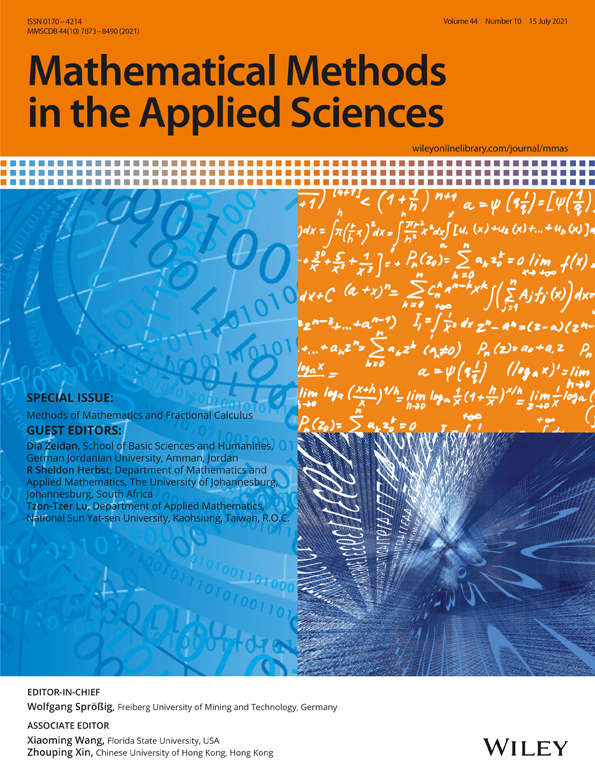Identification of the derivative order in fractional differential equations
Abstract
It is currently established that for general heterogeneous media, the classical Fick law must be replaced by a nonlocal fractional differential operator. In such situations where anomalous diffusion occurs, the crucial difficulty is the identification of the correct orders of fractional differential operators. In the present paper, order identification of fractional differential operators is studied in the case of stationary and evolution partial differential equations. The novelty of our work is the determination of the exact problem satisfied by the derivative of the solution with respect to the differential order. More precisely, if the solution of our boundary value problem, with a fractional differential order , is denoted by , we show that satisfies the same problem but with other source terms. Our new result allows to carry out an exact computation of the cost functional derivative with respect to to perform more accurate and efficient steepest descent minimization algorithms. It can also be applied in optimal control theory and for sensitivity analysis frameworks. Our method is illustrated in two situations: Fractional Poisson equation and Taylor-Couette flow problem with fractional time derivative.
CONFLICTS OF INTEREST
This work does not have any conflicts of interest.




